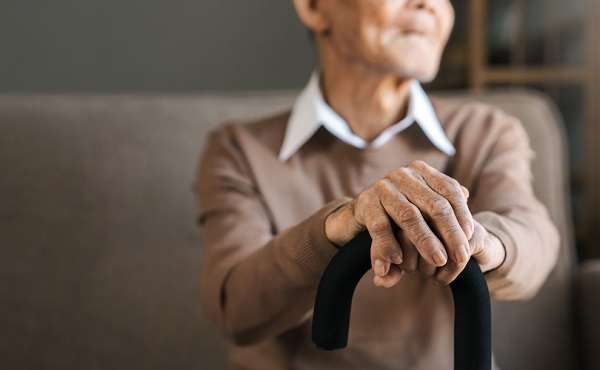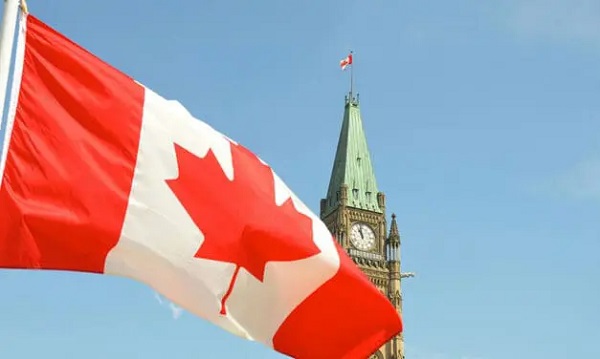MAiD
New report shows people are seeking euthanasia because they’re ‘isolated,’ afraid of being homeless

From LifeSiteNews
By Susan Ciancio, American Life League
According to Ontario’s chief coroner, ‘people asking to be killed’ through euthanasia ‘were more likely to require disability support and be socially isolated,’ and one woman in her 50s ‘asked to die largely because she could not get proper housing.’
Those of us who value the life of all human beings understand the dangers of assisted suicide, or “medical assistance in dying,” as it is euphemistically called in Canada. But now, others have begun to see the horrors of Canada’s laws. A recent article in the Frederick News-Post begins, “An expert committee reviewing euthanasia deaths in Canada’s most populous province has identified several cases where patients asked to be killed in part for social reasons such as isolation and fears of homelessness.”
The article examines reports issued by Ontario’s chief coroner, who reviewed the euthanasia deaths of those who did not have an allegedly terminal illness. It explains that “Canada’s legal criteria require a [purported] medical reason for euthanasia—a fatal diagnosis or unmanageable pain—but the committee’s reports show cases where people were euthanized based on other factors including an ‘unmet social need.’”
A doctor on this expert committee said she feels vindicated that people are seeing the horrors of what Canada’s laws are doing to people. She stated, “We’ve been gaslit for so many years when we raised fears about people getting MAiD because they were poor, disabled or socially isolated.”
Two such cases were discussed in the article. One was a man in his 40s who suffered with a bowel disease and who had a history of both mental illness and substance abuse. The report described him as “socially vulnerable and isolated.”
The second was a woman in her 50s who was “suffering from multiple chemical sensitivity syndrome” and who had a history of PTSD and mental illness. The report states that “she was socially isolated and asked to die largely because she could not get proper housing.”
This report emphasizes what those of us in the pro-life field have been saying for years. Euthanasia is a slippery slope. For example, when a country or a state allows a sick or dying person to end his life prematurely, we open the door for ambiguity of the word “sick.”
Indeed, what is most disturbing about the findings of this report is that the Ontario coroner found that the “people asking to be killed were more likely to require disability support and be socially isolated.”
What does that say about us as a society when people would rather die because they feel they have no one to help take care of them?
Our society puts more emphasis on what a person can do than on who a person is. Human beings have become like commodities that we discard when they are no longer useful.
Caring for others should not be something we are forced to do. It should be something we lovingly do. That doesn’t mean it’s easy. In fact, it can be incredibly difficult to care for someone who is sick or dying. That’s why it should never be something done alone. It takes a team of caregivers – from family, to friends, to sometimes paid staff in facilities or those who make house calls.
For years, I have seen this loving care firsthand with my uncle, whose wife passed away last week after battling dementia. He cared for her at home until he was physically unable to do so. The disease made her combative, and for his health and her safety, he moved her into a care facility.
But unlike some facilities that have staff who leave residents alone in their rooms or in chairs in large common rooms, those at this facility cared for her. My uncle visited her daily, and he always had glowing remarks about how kindly the staff treated her.
My uncle is a model of self-giving love that is increasingly uncommon in today’s world. He didn’t stop loving his wife when she became ill. He didn’t think she was better off dead. He didn’t find her to be a burden. On the contrary, he continued to love her because of who she was. The disease stole her memory, but it did not steal his love for her.
This is the epitome of loving care. This is what it means to be Christ’s hands on earth and to see people with His eyes.
Suffering is never easy, but walking with someone in their suffering is what we are called to do. My uncle did that beautifully, and he is a model to other struggling caregivers.
If everyone who was sick or suffering had people to lovingly care for and protect them, I daresay that the desire for assisted suicide would greatly diminish. After all, who would want to hasten death when they feel loved and cherished?
Susan Ciancio is a graduate of the University of Notre Dame and has worked as a writer and editor for over 20 years; 15 of those years have been in the pro-life sector. Currently, she is the editor of American Life League’s Celebrate Life Magazine—the nation’s premier Catholic pro-life magazine. She is also the director and executive editor of ALL’s Culture of Life Studies Program—a pre-K-12 Catholic pro-life education organization.
Indigenous
Carney’s Throne Speech lacked moral leadership

This article supplied by Troy Media.
 By Susan Korah
By Susan Korah
Carney’s throne speech offered pageantry, but ignored Indigenous treaty rights, MAID expansion and religious concerns
The Speech from the Throne, delivered by King Charles III on May 27 to open the latest session of Parliament under newly elected Prime Minister Mark Carney, was a confident assertion of Canada’s identity and outlined the government’s priorities for the session. However, beneath the
pageantry, it failed to address the country’s most urgent moral and constitutional responsibilities.
It also sent a coded message to U.S. President Donald Trump, subtly rebuking his repeated dismissal of Canada as a sovereign state. Trump has
previously downplayed Canada’s independence in trade talks and public statements, often treating it as economically subordinate to the U.S.
Still, a few discordant notes—most visibly from a group of First Nations chiefs in traditional headdresses—cut through the welcoming sounds that greeted the King and Queen Camilla on the streets of the capital.
The role of the Crown in Canada’s history sparked strong reactions from some Indigenous leaders who had travelled from as far as Alberta and Manitoba to voice their concerns.
“It’s time the Crown paid more than lip service to the Indigenous people of this country,” Chief Billy-Joe Tuccaro of the Mikisew Cree First Nation told me as he and his colleagues posed for photographs requested by several parade spectators. “We have been ignored and marginalized for far too long.”
He added that he and fellow chiefs from other First Nations were standing outside the Senate chamber as a symbol of their status as “outsiders,” despite being the land’s original inhabitants.
Shortly after Carney’s election, Tuccaro and Chief Sheldon Sunshine of the Sturgeon Lake Cree Nation sent him a joint letter stating: “As you
know, Canada is founded on Treaties that were sacred covenants between the Crown and our ancestors to share the lands. We are not prepared to accept any further Treaty breaches and violations.” They added that they looked forward to working with the new government as treaty partners.
Catholics, too, are being urged to remain vigilant about aspects of the government’s agenda that were either only briefly mentioned in the throne
speech or omitted altogether. On April 23, just days before Carney and the Liberals were returned to power, the Permanent Council of the Canadian Conference of Catholic Bishops issued a statement outlining what Catholics should expect from the new government.
“Our Catholic faith provides essential moral and social guidance, helping us understand and respond to the critical issues facing our country,” they wrote. “As the Church teaches, it is the duty of the faithful ‘to see that the divine law is inscribed in the life of the earthly city (Gaudium et Spes, n. 43.2).’”
The bishops expressed concern about the lack of legal protection for the unborn, the expansion of eligibility for medical assistance in dying (MAID)—which allows eligible Canadians to seek medically assisted death under specific legal conditions—and inadequate access to quality palliative care. They also reaffirmed the Church’s responsibility to walk “in justice and truth with Indigenous peoples.”
Although the speech emphasized tariffs, the removal of trade barriers and national security, it made no mention of the right to life, MAID or the charitable status of churches and church-related charities—a status the Trudeau government had considered revoking for some groups.
On Indigenous issues, the government pledged to be a reliable partner and to double the Indigenous Loan Guarantee Program from $5 billion to $10 billion. The program supports Indigenous equity participation in natural resource and infrastructure projects.
Canada deserves more than symbolic rhetoric—it needs a government that will confront its moral obligations head-on and act decisively on the challenges facing Indigenous peoples, faith communities, and the most vulnerable among us.
Susan Korah is Ottawa correspondent for The Catholic Register, a Troy Media Editorial Content Provider Partner.
Troy Media empowers Canadian community news outlets by providing independent, insightful analysis and commentary. Our mission is to support local media in helping Canadians stay informed and engaged by delivering reliable content that strengthens community connections and deepens understanding across the country.
armed forces
Yet another struggling soldier says Veteran Affairs Canada offered him euthanasia

From LifeSiteNews
‘It made me wonder, were they really there to help us, or slowly groom us to say ‘here’s a solution, just kill yourself.’
Yet another Canadian combat veteran has come forward to reveal that when he sought help, he was instead offered euthanasia.
David Baltzer, who served two tours in Afghanistan with the Princess Patricia’s Canadian Light Infantry, revealed to the Toronto Sun that he was offered euthanasia on December 23, 2019—making him, as the Sun noted, “among the first Canadian soldiers offered therapeutic suicide by the federal government.”
Baltzer had been having a disagreement with his existing caseworker, when assisted suicide was brought up in in call with a different agent from Veteran Affairs Canada.
“It made me wonder, were they really there to help us, or slowly groom us to say ‘here’s a solution, just kill yourself,” Baltzer told the Sun.“I was in my lowest down point, it was just before Christmas. He says to me, ‘I would like to make a suggestion for you. Keep an open mind, think about it, you’ve tried all this and nothing seems to be working, but have you thought about medical-assisted suicide?’”
Baltzer was stunned. “It just seems to me that they just want us to be like ‘f–k this, I give up, this sucks, I’d rather just take my own life,’” he said. “That’s how I honestly felt.”
Baltzer, who is from St. Catharines, Ontario, joined up at age 17, and moved to Manitoba to join the Princess Patricia’s Canadian Light Infantry, one of Canada’s elite units. He headed to Afghanistan in 2006. The Sun noted that he “was among Canada’s first troops deployed to Afghanistan as part Operation Athena, where he served two tours and saw plenty of combat.”
“We went out on long-range patrols trying to find the Taliban, and that’s exactly what we did,” Baltzer said. “The best way I can describe it, it was like Black Hawk Down — all of the sudden the s–t hit the fan and I was like ‘wow, we’re fighting, who would have thought? Canada hasn’t fought like this since the Korean War.”
After returning from Afghanistan, Baltzer says he was offered counselling by Veteran Affairs Canada, but it “was of little help,” and he began to self-medicate for his trauma through substance abuse (he noted that he is, thankfully, doing well today). Baltzer’s story is part of a growing scandal. As the Sun reported:
A key figure shedding light on the VAC MAID scandal was CAF veteran Mark Meincke, whose trauma-recovery podcast Operation Tango Romeo broke the story. ‘Veterans, especially combat veterans, usually don’t reach out for help until like a year longer than they should’ve,’ Meincke said, telling the Sun he waited over two decades before seeking help.
‘We’re desperate by the time we put our hands up for help. Offering MAID is like throwing a cinderblock instead of a life preserver.’ Meincke said Baltzer’s story shoots down VAC’s assertions blaming one caseworker for offering MAID to veterans, and suggests the problem is far more serious than some rogue public servant.
‘It had to have been policy. because it’s just too many people in too many provinces,” Meincke told the Sun. “Every province has service agents from that province.’
Veterans Affairs Canada claimed in 2022 that between four and 20 veterans had been offered assisted suicide; Meincke “personally knows of five, and said the actual number’s likely close to 20.” In a previous investigation, VAC claimed that only one caseworker was responsible—at least for the four confirmed cases—and that the person “was lo longer employed with VAC.” Baltzer says VAC should have military vets as caseworkers, rather than civilians who can’t understand what vets have been through.
To date, no federal party leader has referenced Canada’s ongoing euthanasia scandals during the 2025 election campaign.
-

 Health2 days ago
Health2 days agoLast day and last chance to win this dream home! Support the 2025 Red Deer Hospital Lottery before midnight!
-

 Aristotle Foundation2 days ago
Aristotle Foundation2 days agoThe Canadian Medical Association’s inexplicable stance on pediatric gender medicine
-

 Uncategorized2 days ago
Uncategorized2 days agoKananaskis G7 meeting the right setting for U.S. and Canada to reassert energy ties
-

 Business2 days ago
Business2 days agoCarney’s Honeymoon Phase Enters a ‘Make-or-Break’ Week
-

 conflict2 days ago
conflict2 days agoTrump leaves G7 early after urging evacuation of Tehran
-

 Alberta2 days ago
Alberta2 days agoAlberta announces citizens will have to pay for their COVID shots
-

 Business2 days ago
Business2 days agoCarney praises Trump’s world ‘leadership’ at G7 meeting in Canada
-

 Business1 day ago
Business1 day agoTrump family announces Trump Mobile: Made in America, for America






